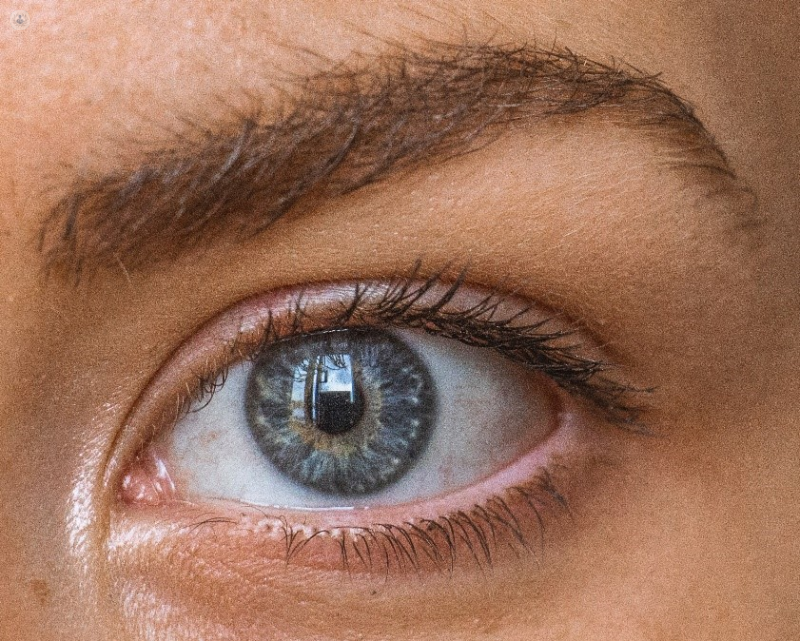Intravitreal injections and the use of iodine beforehand
Written by:Intravitreal injections are often used to treat various conditions such as diabetic retinopathy, uveitis and macular oedema. Administering iodine beforehand can allow for more effective results. In our latest conversation with a highly experienced ophthalmologist, we found out why.

We spoke with London based ophthalmologist, Mr Praveen Patel, to discuss how intravitreal injections work, what their side effects are and how using iodine beforehand can help.
Why is iodine used before an intravitreal injection?
Treatment for wet age-related macular degeneration, retinal vein occlusion, diabetic macular oedema and other macular diseases involves injections into the middle part of the eye (intravitreal injections). Drops are used before the injection to prepare the eye. The first drop used is a strong local anaesthetic to numb the eye. This is why injections in the eye don't hurt, and most people experience only mild discomfort at the time of the injection. The second drop used is iodine.
Washing the eyelids and using iodine drops is the main way of reducing the risk of sight-threatening infection. Iodine drops are a common antiseptic agent used before any surgery or procedure to the eye, including intravitreal injections and cataract surgery. The use of iodine reduces the risk of sight-threatening infection (endophthalmitis) to less than one in 1000 per injection or procedure.
Is it common for iodine to lead to an allergic reaction?
Although people can be allergic to many different things, iodine isn't something that triggers an allergic reaction because it occurs naturally in the body and is actually necessary for thyroid function.
Some people develop an allergic reaction to other substances mixed in with iodine which is why iodine-containing medical agents can cause an allergic reaction. Allergic reactions can vary from itching and redness on the skin all the way to more severe reactions where people have problems breathing (anaphylaxis).
Is it common to experience some sensitivity or side effects with iodine?
It is common to have soreness and grittiness after eye injections for macular disease and this is because of the effects of the iodine drops on the surface of the eye. Although iodine is an excellent antiseptic agent and is essential in reducing the risk of infection after eye procedures, it can cause irritation on the eye's surface, which leads to soreness after any eye procedure. This soreness is usually mild and may last a day or two. Some people experience more severe sensitivity where the surface of the eye becomes rough and irregular due to a contract to the cornea (the transparent window at the front of the eye) and this scratch (corneal abrasion) can take three to seven days to heal.
Is there an alternative antiseptic agent that can be used?
Thankfully, people who have a sensitivity to iodine can be helped by using a small amount near the intravitreal injection site instead of using something different. Although there are alternative antiseptic agents (e.g. chlorhexidine), they are less effective than iodine drops in preventing infections.
How can I lessen any sensitivity to iodine?
There are several ways of reducing iodine sensitivity. One way is to use drops for dry eyes for several days before the intravitreal injection. Another way is only to use a small amount of iodine when the injection is to be given and then to wash out the iodine thoroughly after the injection. Finally, people with a sensitivity to iodine can be given lubricating teardrops to use every hour or two for a few days to help prevent pain or soreness.
If you feel you may require intravitreal injections, you might like to get in contact with an expert ophthalmologist such as Mr Praveen Patel. Click here to visit his Top Doctors profile today for more information.


